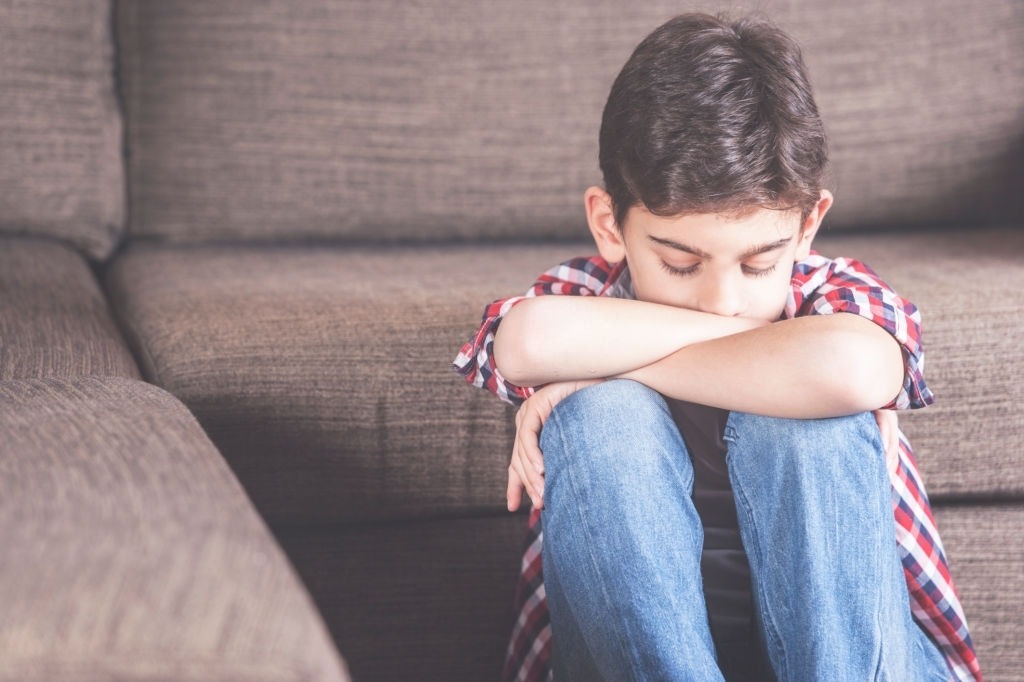The effects of domestic violence on children play a tremendous role on the well-being and developmental growth of children witnessing the event. Children who witness domestic violence in the home often believe that they are to blame, live in a constant state of fear, and are 15 times more likely to be victims of child abuse.
Symptoms children may have while witnessing domestic violence
Physical symptoms
In general, children who witness domestic violence in the home can suffer an immense amount of physical symptoms along with their emotional and behavioural state of despair . These children may complain of general aches and pain, such as headaches and stomach aches. They may fall asleep in school due to the lack of sleep at home. Much of their night may be spent listening to or witnessing violence within the home. Children who are victims of domestic violence are often frequently ill, and may suffer from poor personal hygiene. Children who witness domestic violence also have a tendency to partake in high risk play activities, self-abuse, and suicide.
Prenatal
The physical effects of domestic violence on children, unlike the effects of direct abuse, can start when they are a fetus in their mother’s womb, which can result in low infant birth weights , premature birth, excessive bleeding , and fetal death due to the mother’s physical trauma and emotional stress .
Infants
Infant children who are present in the home where domestic violence occurs often fall victim to being “caught in the crossfire.” They may suffer physical injuries from unintentional trauma as their parent is suffering from abuse.
Older children
Physical effects of witnessing domestic violence in older children are less Evident than behavioural and emotional effects. The trauma that children experience when they witness domestic violence in the home, plays a major role in their development and physical well-being. Older children can sometimes turn the stress towards behavioural problems. Sometimes children who witness the abuse turn to drugs, hoping to take the pain away.
Behavioural symptoms
Children exposed to domestic violence are likely to develop behavioural problems, such as regressing, exhibiting out of control behaviour and imitating behaviour. Children may think that violence is an acceptable behaviour of intimate relationships and become either the victim or the abuser.
Teen dating violence
An estimated 1/5 to 1/3 of teenagers subject to viewing domestic violent situations experience teen dating violence, regularly abusing or being abused by their partners verbally, mentally, emotionally, sexually or physically.
Emotional symptoms
Children exposed to violence in their home often have conflicting feelings towards their parents. For instance, distrust and affection often coexist for the abuser. The child becomes overprotective of the victim and feels sorry for them. They often develop anxiety, fearing that they may be injured or abandoned, that the child’s parent being abused will be injured, or that they are to blame for the violence that is occurring in their homes. Witnessing violence in the home can give the child the idea that nothing is safe in the world and that they are not worth being kept safe which contributes to their feelings of low self-worth and depression.
Anger
Some children act out through anger and are more aggressive than other children. Even in situations that do not call for it, children will respond with anger. Children and young people particularly highlighted angry feelings as a consequence of experiencing domestic violence. Physical aggression can also manifest towards the victim from the children as the victim does not have the ability to develop authority and control over them.
Social symptoms
Children exposed to domestic violence frequently do not have the foundation of safety and security that is normally provided by the family. The children experience a desensitization to aggressive behaviour, poor anger management, poor problem solving skills , and learn to engage in exploitative relationships.
Symptoms include isolation from friends and relatives in an effort to stay close to siblings and victimized parent. The adolescent may display these symptoms by joining a gang or becoming involved in dating relationships that mimic the learned behaviour.
Effects of domestic violence on infants and toddlers
- Cries excessively, screaming
- Feeding and sleeping routines are disrupted
- Low weight
- Need for attachment is disrupted
- Regressive behaviours
- Separation/stranger anxiety
Ways to help
Early intervention is one of the best ways to counteract the effects of witnessing abuse. Ways to help children who have witnessed domestic abuse include:
- Arranging school age children to receive counselling from professionals at their school, often school counsellors.
- Experimenting with various types of counselling: play therapy , peer support groups, anger management classes, and safety programs to teach kids how to extract themselves from dangerous situations.
- Finding a loving and supportive adult to introduce to the child and encourage the child to spend as much time regularly with the adult. This may include a trusted family member or community advocate.
- Providing a safe environment that does not include violence in any form after a child has witnessed domestic violence.
- Finding ways to discipline that do not involve hitting, name-calling, yelling or any form of verbally aggressive behaviour.
- Helping children create a sense of safety by having scheduled routines, such as regular meals and homework times.
Conclusion
Children exposed to domestic violence require a safe nurturing environment and the space and respect to progress at their own pace. The caretaker should provide reassurance and an increased sense of security by providing explanations and comfort for the things that worry the children, like loud noises. Children should develop and maintain positive contact with significant others such as distant family members. All family members are encouraged to become involved in community organizations designed to assist families in domestic violence situations.








